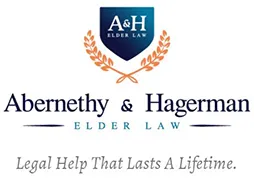Pennsylvania Guardianship and Conservatorship Attorneys Help Clients Assume Legal Authority for Incapacitated Individuals
Allison Park firm provides compassionate support
You might believe that someone close to you no longer has the ability to make sound choices about their own physical and financial well-being. If you wish to assume legal responsibility for that person through a guardianship action, Abernethy & Hagerman, LLC in Allison Park offers thoughtful, compassionate guidance. We have more than 50 years of combined experience serving Allegheny, Butler, Washington and Westmoreland counties in a wide array of matters where Pennsylvanians look to assist elderly people and those with special needs.
What are the duties of a guardian?
Serving as a guardian is a serious undertaking, and our firm will make sure that you fully grasp what you can expect relating to:
- Guardianship of the person — As guardian of the person, you are responsible for the general care, maintenance and custody of an incapacitated individual. During the process of establishing this type of guardianship, you should demonstrate to the court what type of plan you have to support the incapacitated person, including your intentions regarding their living arrangements, medical treatment and how much in-person contact you will have with them.
- Guardianship of the estate — What some jurisdictions refer to as conservatorship is known as guardianship of the estate in Pennsylvania. Someone vested with this authority has a fiduciary duty to safeguard the incapacitated person’s assets, pay necessary expenses and keep an accurate inventory of income and expenditures.
- Annual reports — Whether you serve as guardian of the person, the estate or both, you are required to submit an annual report discussing relevant issues to the Orphans’ Court of the county were the guardianship was established.
Removing someone’s ability to make key decisions for themselves is a step that courts take seriously. Even if an individual has significant problems, a judge might seek less intrusive ways to address the situation. Before you start the process of establishing legal guardianship, we’ll advise you about the likelihood of obtaining the result you seek.
Skillful lawyers guide clients through the guardianship process
In Pennsylvania, the Orphans’ Court handles guardianship proceedings. Any competent adult can serve as a guardian as long as they do not have any interests that are adverse to the allegedly incapacitated person. Our firm prepares petitions and supporting materials to demonstrate to the judge that the respondent needs someone to make decisions on their behalf relating to personal care, finances or both.
Can a conservatorship or guardianship be established on an emergency basis?
When someone is suddenly incapacitated and a risk of irreparable harm exists, a guardian can be appointed on an emergency basis. In these cases, the Courts may impose an initial guardianship order that lasts 72 hours and could be extended for up to 20 days. Emergency guardianship petitions can be granted without the independent evaluation that is required in standard requests.
Attorneys create power of attorney documents
Some people believe that creating a springing power of attorney is equivalent to establishing legal guardianship, but there are significant differences. A power of attorney is created by the principal who voluntarily grants specific legal authority to an agent in the event that the principal becomes incapacitated at some point. If so, the agent has the right to act on the principal’s behalf. While a power of attorney is a voluntary agreement between two parties, legal guardianship must be established by a court order based on information provided by the prospective guardian. The incapacitated person might not agree to the guardianship or might not be aware of what’s happening.
Contact a Pennsylvania lawyer to discuss a guardianship or conservatorship issue
Abernethy & Hagerman, LLC in Allison Park represents Pennsylvanians in guardianship in conservatorship proceedings. Please call 412-486-6624 or contact us online to make an appointment where you can discuss your options with a qualified attorney.

